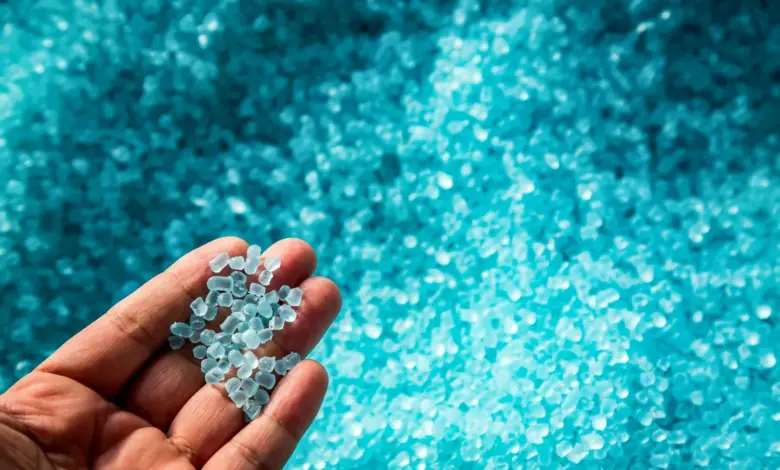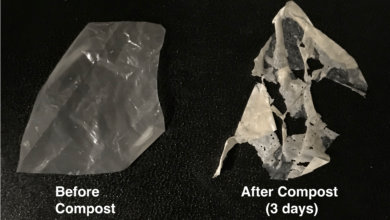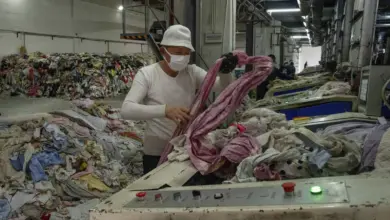Advancements in Biodegradable Plastics, Including Solubag, Show Promise in Reducing Global Waste

Recent advancements in biodegradable plastics are showing promise in addressing global waste problems. Innovations include plastics embedded with self-degrading enzymes that can completely disintegrate within 24 weeks, and Solubag’s patented biodegradable raw material that dissolves in water. Additionally, an engineered enzyme embedded into PLA is being developed to make self-biodegradable plastic. These developments aim to reduce the environmental impact of plastic waste and offer sustainable alternatives to traditional single-use plastics.
Self-Degrading Enzymes
One of the most promising developments in biodegradable plastics is the use of self-degrading enzymes. These enzymes are embedded in the plastic and activated when the plastic comes into contact with water or moisture. The enzymes then break down the plastic into its constituent monomers, which can be easily absorbed by the environment. This process can completely disintegrate the plastic within 24 weeks, leaving no harmful residue behind.
Solubag’s Biodegradable Raw Material
Another innovative approach to biodegradable plastics is Solubag’s patented biodegradable raw material. This material is made from renewable resources, such as corn starch and sugar cane, and it is completely compostable. Solubag’s material can be used to create a variety of plastic products, including bags, packaging, and straws.
Engineered Enzymes
In addition to self-degrading enzymes and biodegradable raw materials, researchers are also developing engineered enzymes that can be embedded into plastics to make them self-biodegradable. These enzymes are designed to break down specific plastics, such as polyethylene terephthalate ( PET) and polypropylene (PP). This process can be controlled to ensure that the plastic degrades at a desired rate, making it a potential solution for recycling these difficult-to-recycle plastics.
The Benefits of Biodegradable Plastics
The development of biodegradable plastics offers a number of potential benefits, including:
Reduced environmental impact: Biodegradable plastics can help to reduce the environmental impact of plastic waste by breaking down into harmless substances that can be easily absorbed by the environment.
Sustainable alternatives: Biodegradable plastics can offer sustainable alternatives to traditional single-use plastics, which are often made from non-renewable resources and can take hundreds of years to decompose.
Recycling opportunities: Biodegradable plastics can be recycled, which can help to reduce the amount of plastic that ends up in landfills and incinerators.
Conclusion
The development of biodegradable plastics is a promising step towards addressing global waste problems. These innovative materials offer a number of potential benefits, including reduced environmental impact, sustainable alternatives to traditional plastics, and recycling opportunities. As these technologies continue to develop, biodegradable plastics are likely to play an increasingly important role in a more sustainable future.
Did you find this Information helpful?
Thanks for your feedback!
Tags: Environment, Recycling, Sustainable
See Comments




